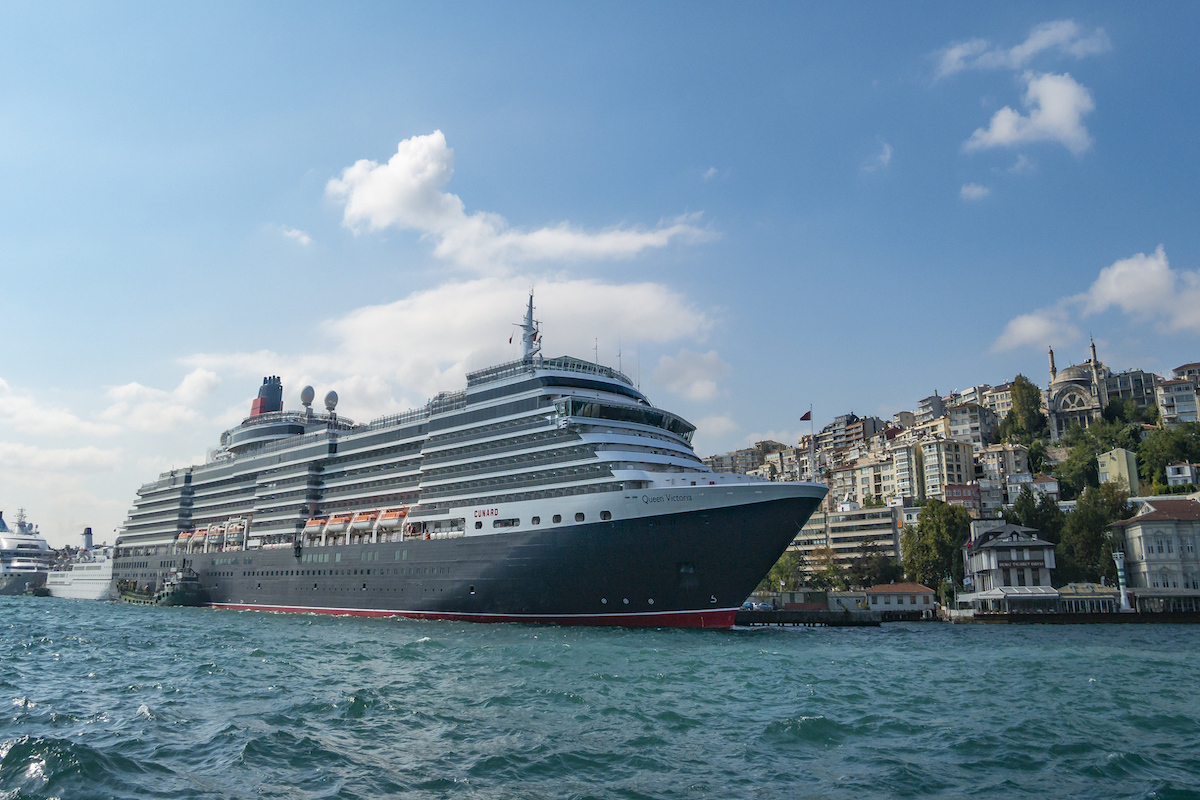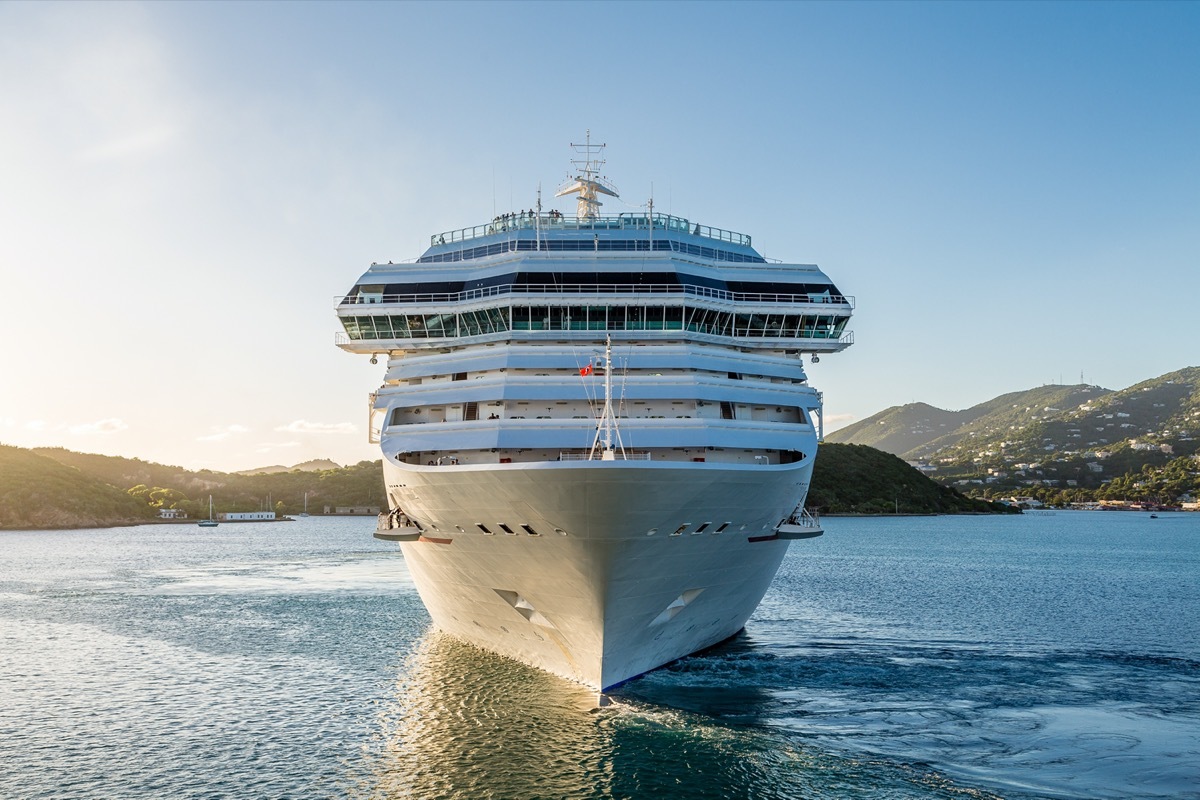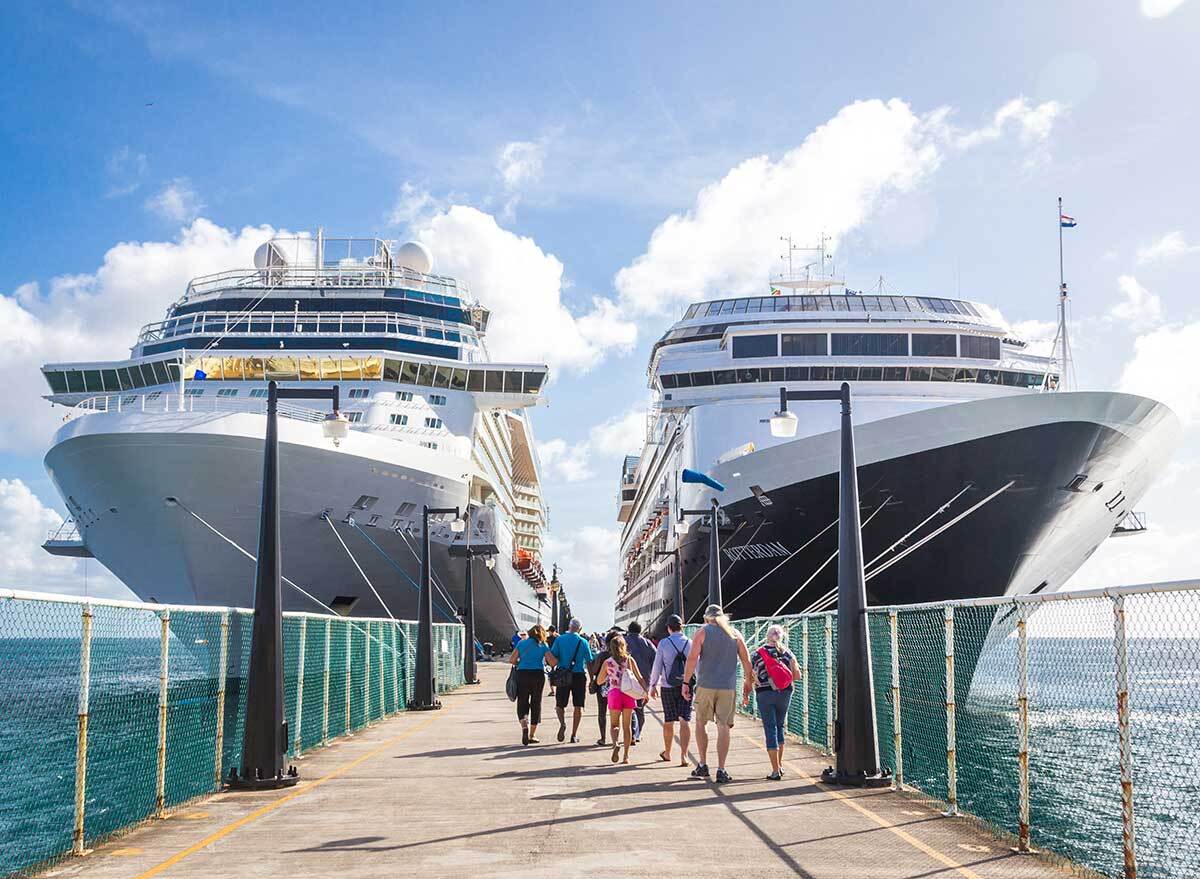These Are the Cruise COVID Restrictions You Still Have to Follow
The CDC may have lifted its warnings, but cruise line rules remain in place.

When the pandemic slammed into the travel industry, cruising was hit hard. Cruise ships, which already had a reputation for swift virus transmission, became ground zero for super-spreader outbreaks. As a result, the U.S. Centers for Disease Control and Prevention (CDC) imposed two years of heavy restrictions across the cruise industry as the pandemic raged. But with COVID levels now low across the U.S., the CDC haslifted its travel health notice for cruising, fully removing the warning level (from its most recent status, which had been level 2).
This might seem like a big deal for cruise ship passengers, as it's the first time since the start of the pandemic that no CDC warnings are in effect. But it also might not be the game changer you think. Read on to find out what COVID restrictions you still have to follow on cruise ships.
TERKAIT:5 Things You Should Never Bring on a Cruise, Experts Warn.
You may or may not still have to wear a mask on board, depending on your ship.

If you'd have thought the CDC's update would have automatic effects on masks policy, you'll have to think again. Actually, with low case loads and high rates of vaccination across the industry, many cruise lines have made masks optional, but not all. And in some cases, masks are required under only certain conditions during cruising. Check your cruise line's status before making any assumptions; The Points Guy has aggregate information for all the lines.
Just about every cruise line requires vaccination before embarkation.

Remember that the CDC is a government agency that issues guidance; individual businesses set their own rules. To that end, nearly every cruise line requires almost every passenger over the age of 18 to be vaccinated, without exception. And some require a booster dose, too. So you'll need to know the rules for your cruise line before travel. Travel + Leisure has compiled data for the current requirements of each cruise line.
TERKAIT:This Is the Most Dangerous Place to Be on a Cruise, Experts Say.
The CDC recommends vaccination before cruising, and urges high-risk people to talk to their doctor first.

As the Omicron variant was surging this winter, the CDC warned that even people who were vaccinated should avoid cruising because of the high risk of transmission on board. As the variant receded, the agency changed its wording to indicate a "moderate" risk onboard and recommended vaccination before a cruise.
Now, the CDC still urges cruise ship passengers to get vaccinated before traveling. And it further recommends that immunocompromised people, or people who are otherwise at high risk for severe virus, talk to their doctor about taking additional safety measures.
"The virus that causes COVID-19 spreads easily between people in close quarters on board ships," the CDC website explains. "If the virus is spreading on board a cruise ship, passengers and crew are at risk for infection, even if they are up to date with their COVID-19 vaccines."
TERKAIT:For more up-to-date information and travel advice, sign up for our daily newsletter.
The CDC's color-coded system is designed to help you make an independent decisions regarding cruise ship travel.

Since January, the CDC has a new color-coded rating systemthat distinguishes cruise lines based on reported COVID cases, whether an investigation is needed, additional public health measures a ship is taking, and whether a ship has opted out of the program. The system was is designed to help passengers make informed decisions independently.AE0FCC31AE342FD3A1346EBB1F342FCB.
You can check the status for any cruise line that opted into the program for cruise ships operating in U.S. waters on CDC's cruise ship color status page. (Gray-designated cruise ships are foreign-flagged cruise ships operating in U.S. waters that have opted out of participation.)
TERKAIT:Never Eat at This Kind of Restaurant on Vacation, Experts Warn.

This Zodiac Sign Is the Biggest Backstabber, Astrologers Warn

